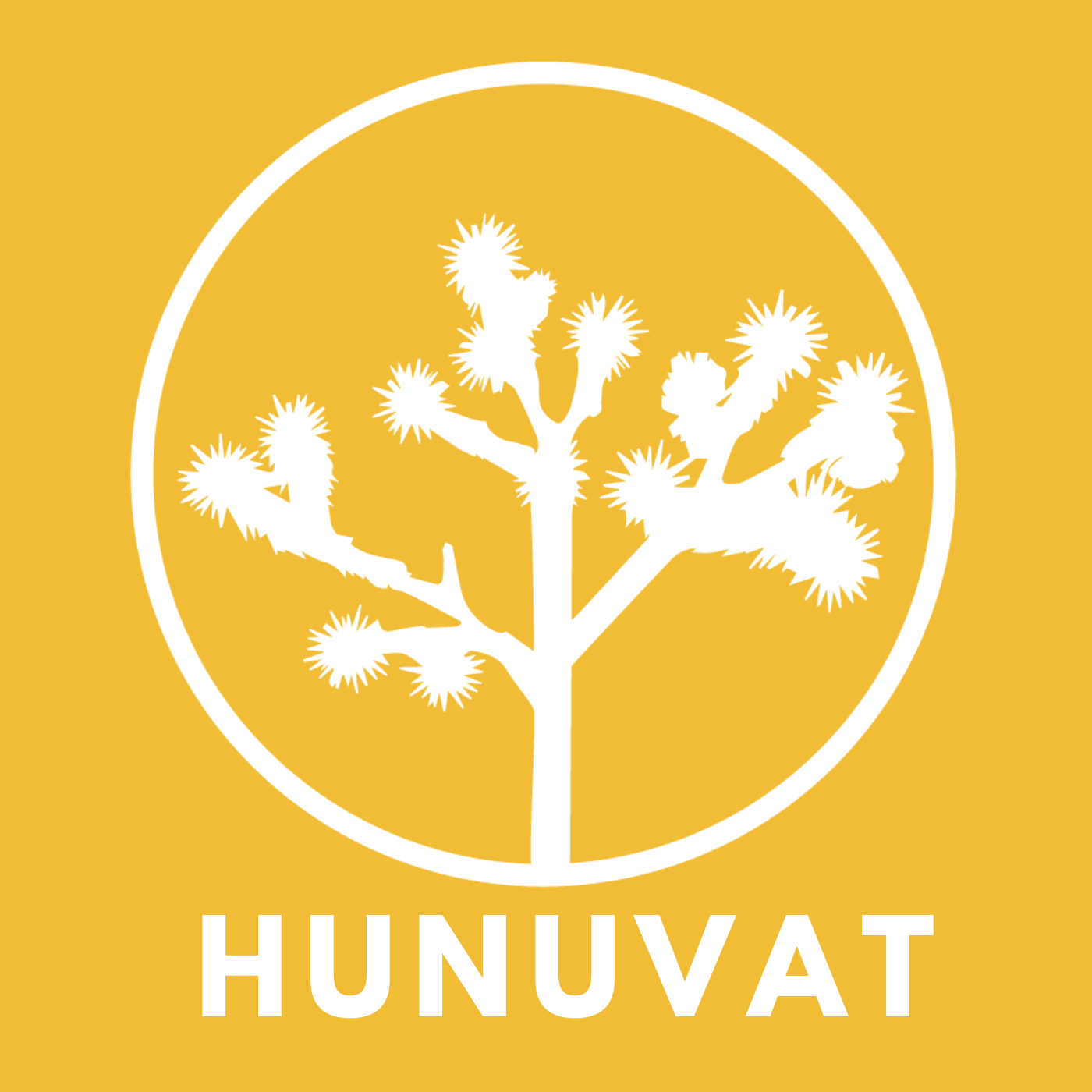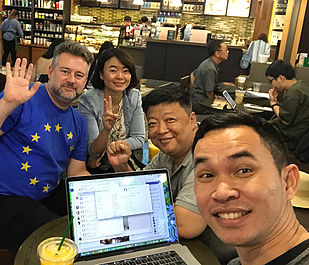Laos, Thailand and Technology: the 21st Century Front Line Against AIDS
AIDS activist and HIV treatment entrepreneur Thomas Cai frowns, huddled over a computer screen with Douang Thammachedy, the newly hired general manager for Lao VMED.
Why aren't more of the country's population of 7000 people with HIV on treatment? She nods vigorously, pointing to the deleteriously low HIV test availability. The founder of AIDS Care China has set up an international a social enterprise, VMED, which is revolutionizing the way the business community, advocates and patients communities work with governments to increase the scope and quality of testing and treating HIV and Hepatitis.
In Laos, the guidelines have been updated, the pharmaceutical manufacturers engaged, the physicians trained - so where are the patients? Thomas is impatient - Inspirationally and sometimes infuriatingly so.
I am joining them this week to ensure that the closure of Pangaea back in March doesn't impact their good work here. In fact, VMED has just been approved by the Ministry of Commerce and Industry to operate in Laos. So the timing is good. We manage to get a meeting with the head of the national AIDS program, the patient but persistent Dr Bounpheng. He is having to complete the next application to the Global Fund to fight HIV, TB and Malaria. The Fund's portfolio team are demanding a whole new slew of new information, and rapidly. He needs to submit the revised note by close of business, so he can only give us an hour.
We revise our Memorandum of Understanding, agree who does what next: VMED's top priorities are migrant workers and large businesses - often run by Chinese employers. Subsidized and workplace treatment programs will have a rapid impact. I smile to myself: this is exactly what the late Ambassador Holbrooke and I had in mind when we set up the Global Business Coalition on AIDS 16 years ago.
The weather is blisteringly hot - but there is a chill over Dr Bounpheng. The Global Fund grant will only be for 2 million USD dollars. And The Fund will cease funding altogether in 2020. The US Government program, PEPFAR, is not doing any better. It won't release the funding for the country's HIV outreach with gay men and sex workers that was promised in January, and again in March and April....They say it's just a technical delay, but as we get the reports on our smart phones of the new Trump budget proposal, which slashes international aid, what should we think? Bounpheng asks explicitly how he should plan - Assume it's coming? Or just get on without it? He asks me to raise the matter with Congress, (assuming everyone in America knows their local congressperson). But the Bay Area is lucky to have Barbara Lee, Oakland's fearless progressive champion in Congress.These are hectic times for US politicians, but she has always remained surprisingly accessible, and I promise to do my best.
Laos is in the worst catch 22 situation - a victim of an outstanding miscalculation by public health planners: it has low recorded numbers of people living with HIV. It is therefore defined as a "low prevalence" country and not a priority, not deserving of the major influx of AIDS funding seen since 2000. Yet it is surrounded - literally - by countries with much higher rates of infection, and is a travel hub connecting them. Does it have to wait until things get really bad before the international community will take notice? Douang and I make eye contact. We both know that the great international public health planners speak only of imminent victory, a reality quite disconnected from the world she inhabits everyday.
Laos is yet another example of HIV prevention and testing being seriously neglected, while understandably, the initial focus was on saving the lives of people with HIV through antiretroviral treatment. But. If the pie is only so big, you have to decide who eats and who goes hungry. Surely this cant be a rational way to respond to one of the greatest human challenges of the 21st century.
A new hashtag is creeping its way onto the UNAIDS and PEPFAR social media news feeds: #StartStayAIDSFree. Probably well-meaning, but utterly unintelligible. I try to work it out in my head. So, it is OK to be infected with HIV just as long as you never progress to AIDS? Well, thats an expensive and dangerous way of doing things.
Maybe #StartStopAIDSFree would better reflect what's going on around here. Ending the AIDS epidemic was never going to be easy, but in 2017, the combined crises of right-wing populism and radically deteriorating development funding may grind all progress to a halt. Is that what countries like Laos face? I'm feeling sour, and my mood is darkened by news from Manchester. At times it is hard to see how humans treat each other with anything other than either absolute stupidity or hatred.
Two days later, Thomas and I are sitting in the cool of the air conditioned meeting room of VMED's Chiangmai Clinic. Thomas has a knack of finding brilliant people to work with: this time it is Panyaphon "Ten" Phiphatkhunarnon. He is a young, energetic, IT entrepreneur and founder of Love Foundation, a non-profit that is laser-focused on getting the new generation of sexually active gay men understand both the risks of HIV and new approaches to avoid infection - particularly PrEP.
We are strategizing on how to get the clients of hook up apps (where men meet other men for sex - and which are extremely popular across Asia) to get HIV tested, then get treatment if they are positive, and get PrEP if they are negative. And then carry on with healthy sex-positive lives. I was last in Chiangmai twenty years ago for the International Conference for People Living with HIV. I can't help shuddering at how the Internet and iPhone have changed the world. Back then I would never have imagined that the successors of my bulky Nokia mobile phone would revolutionize so much of our private experience.
We are planning for a skype meeting the following morning with the CEO of one such app, Hornet, which has huge reach across Asia. Far from rejecting HIV as a "turn off" to clients, as many in the gay lifestyle industries might do, Hornet's Sean Howell is intrigued at the possibilities for HIV prevention and empowerment and already has a proven track record in the industry.
The next day we huddle around Ten's MacBook skyping Sean.
"Well, you three look like you are already pretty close" he jokes.
Thomas and Ten make the pitch: VMED wants to advertise on Hornet - the adverts must pop up right in the center of users' smart phones. The graphics must grab you, convince you to get tested, and on the back end, make PrEP irresistibly easy to get hold of.
Sean is enthusiastic: When shall we start, he asks, almost rhetorically. "Why, next week of course!" responds Thomas. VMED is ready to source different versions of the PrEP medication through its network of established manufacturers and it will give Hornet users a deep discount to boot. The campaign will run initially for three months focused on Asian markets, particularly China, Thailand and Taiwan - which has historically just approved gay marriage.
I confess at first, I'm more cautious. Online pharmacies are the Wild West of the virtual world, with regulators barely keeping abreast with both the advances in technology and how people innovate with their healthcare using these technologies. But a doctor's prescription for PrEP is the crucial starting requirement - and it's an exciting entry point for regular testing.
I think I'm haunted by the horror I experienced a few years ago on vacation in Puerta Vallarta where beach sellers offered pot pipes in the shape of huge penises, and "twofers" of a blister pack strip of four or five generic truvada pills, combined with a sleeve of a few blue pills that are claimed to be Viagra. It was Willy Wonka for party boys.
But of course, this is not at all what we are talking about.
In fact, what Thomas is proposing is the logical 21st century extension of the buyers clubs of the early eighties that Project Inform's Marty Delaney pioneered.
Yet again, HIV is on the cutting edge of patient empowerment. And where better for this future to be etched in the second decade of the 21st century than South East and East Asia? Back in the US, the FDA will have to play catch up again. Assuming it has any budget for the next four years.
On my way home, at Chiangmai airport, I arrange to meet up briefly with Tina Luo, who has succeeded Thomas as AIDS Care China's Executive Director. Over the coming weekend, she and Thomas will be hosting harm reduction activists and experts from across the region to plan how to implement take home methadone strategies, another innovation that authorities are struggling to keep up with. Traditional public health models have demanded that methadone be directly observed at the clinic. For a lot of patients such explicit lack of trust is counterproductive, and for the clinics themselves, likely an unnecessary logistic burden. To this day, the crisis of HIV in injection drug users remains underestimated, underfunded and treated with utter contempt by too many public health and drug control authorities. Just this week, one of ACC's clients died suddenly and unexpectedly, devastating the team. Yet, as always, Tina is upbeat, optimistic and confident that she will overcome.
An hour later I board my flight for the first leg of nearly 36 hours travel (the price I have to pay for treating myself to a cheap business class ticket to and from San Francisco).
I reflect that "Turning" and "tipping points" have been the vogue in AIDS advocacy since the mid nineties. But we might, now, actually be at one. The course of the 21st century HIV epidemic is not a forgone conclusion. Of course, HIV will not be over by 2030. Indeed, quietly - away from the press launches and hashtags, many of us have whispered an unpopular unease that, far from victory, we may actually be on the cusp of a new dark underworld born by these irresponsible promises: A second wave of mass infections with virus resistant to all current therapies.
But that worst-case scenario is just as unlikely as the "End of AIDS." There are no guarantees, but condemning AIDS to history will require an gargantuan effort, with zero tolerance for AIDS fatigue, and an entire lifetime's dedication by this and the generations to come of extraordinary people like those I have had the honor to work with this week.
But, if we accept that this is the fight of our lives, then to borrow a phrase from a recent era that resonates now more strongly than ever - yes we can.



